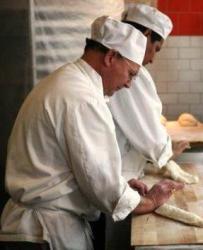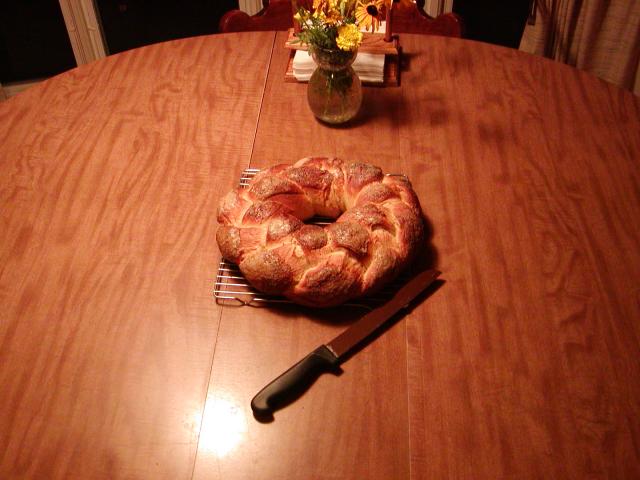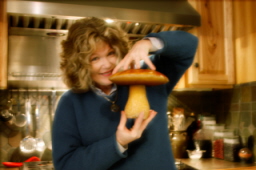I've been doing quite a bit of baking this weekend. In addition to the Grape Harvest Focaccia I've blogged about yesterday, today I made the potato pizza from Maggie Glezer's "Artisan Baking". The recipe calls for a very wet dough -- more water than flour, actually. You knead the dough using the paddle on your stand mixer for 20 whole minutes. In the process it miraculously transforms from this:

To this:

It really is a quite unbelievable transformation. However did anyone figure it out? This dough, albeit wet and sticky, passes the windowpane test:

I liberally oiled (although, in retrospect, not liberally enough, as a bit of pizza stuck to the pan) a half-sheet pan, and shaped the wet dough onto it, carefully as to not burst any bubbles. I had to let the dough rest several times in order to stretch the dough to fit the entire pan. Each time, using some more olive oil. I added the potato-onion-rosemary topping (the potatoes were thinly sliced using a mandoline, and then salted and squeezed from the liquid before mixing with the onion and rosemary). I added some more olive oil on top of the topping.

I put the pizza into a preheated oven for 40 minutes. Shortly after the pizza began baking, the house filled with a wonderful aroma of onions and potatoes. It really got those gut juices going! Halfway through the baking I took a peek to rotate the dough, so I used that occassion to take a picture of the partially baked pizza:

40 minutes later, the pizza was ready:

I removed it from the pan (as I said above, I didn't oil the pan well enough, so it stuck in a couple of places.) The crust rose nicely; here is a side view:

This was a fun baking project!





















